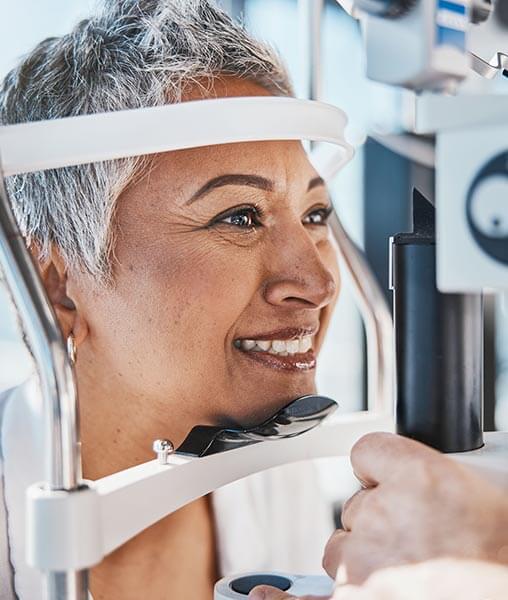Posted by: Albany Cornea | Center For Eye Care Excellence in Comprehensive Eye Care

Health and wellness tend to be hot topics at the beginning of each new year. After the year we’ve just come through, the tone of health and wellness may be slightly different. We’re still thinking about how we can slow the spread of the novel coronavirus and keep ourselves and our loved ones safe. Still, other health matters continue to need our attention. Being a premier eye care center in the Albany area, we think about how we can help our patients maintain optimal eye health. One way to do that is to perform comprehensive exams. For adults, these should be scheduled annually. Here, we outline what a wellness exam for your eyes may entail.
What is Involved in Your Annual Eye Exam
During your routine eye exam, your doctor may ask you about any changes to your general health, eye health, or vision since your last appointment. If you are seeing an eye doctor for the first time, they may ask about your health history, medications you are taking, and family history of eye conditions. Additionally, a general vision screening may be performed along with the following:
- Slit-lamp exam. This brief examination of the front of the eye is done by shining a bright light toward the ocular surface. This lets the doctor observe the cornea, lens, iris, eyelids, and eyelashes. Observing these areas, the doctor can spot signs of cataracts and can see how well the tear film is functioning.
- Retina and refraction. The retina is a piece of tissue at the back of the eye where light lands. The retina transfers light to the brain via the optic nerve. If light is not bent precisely as it travels through the eye to the retina, an error of some type is likely. Common refractive errors include astigmatism, presbyopia, farsightedness, and nearsightedness. These can be corrected with prescription lenses or, sometimes, with LASIK.
- Glaucoma screening. Glaucoma is one of the most common eye diseases diagnosed today. It involves an increase in intraocular pressure, the pressure that exists in the eye. Glaucoma is not painful and does not provide many clues in terms of vision. The way that people may find out they have this condition is by losing their peripheral vision. Because this side vision is not integral to seeing well, people often do not realize they have lost it until their doctor identifies glaucoma during their eye exam. Glaucoma is a serious eye condition that could result in blindness, so early detection is critical.
Center For Eye Care Excellence cares about your long-term vision. To schedule a comprehensive eye exam, call 518.475.1515">518.475.1515.

